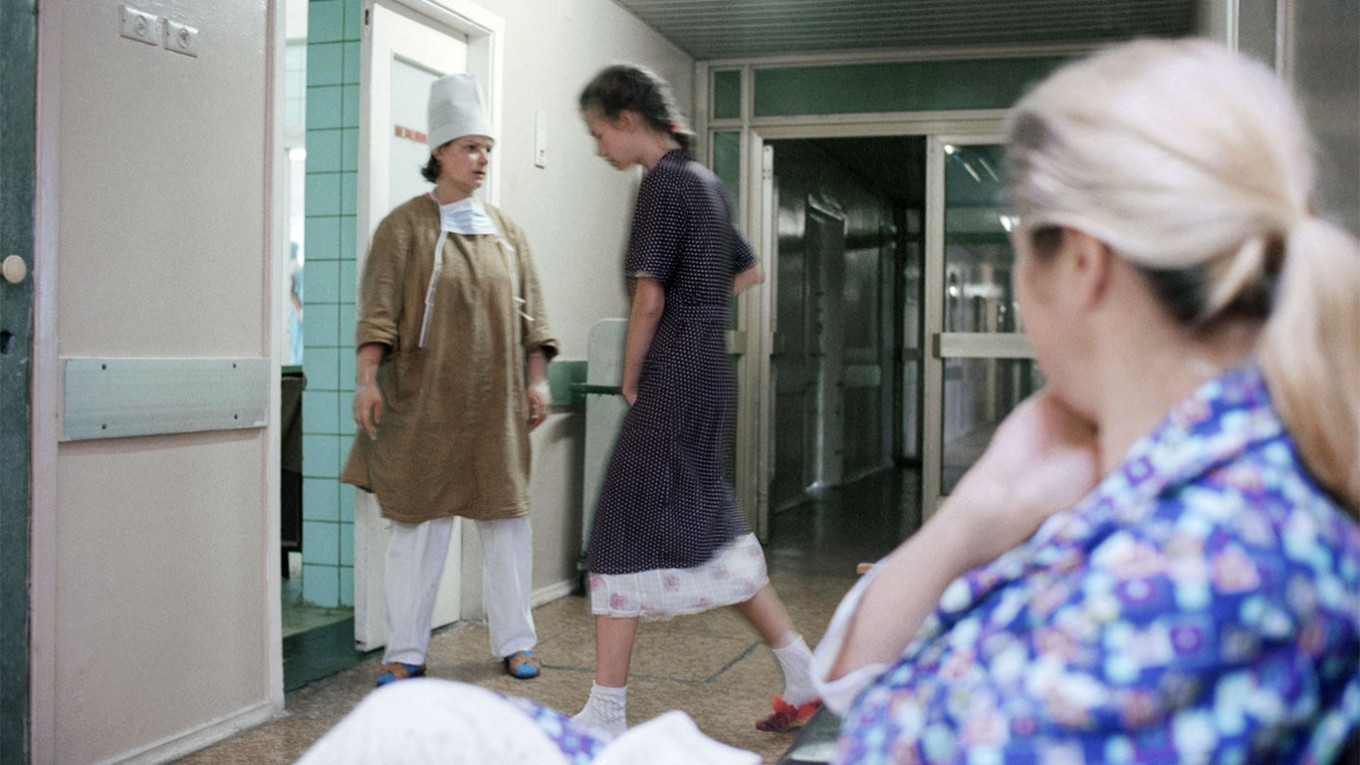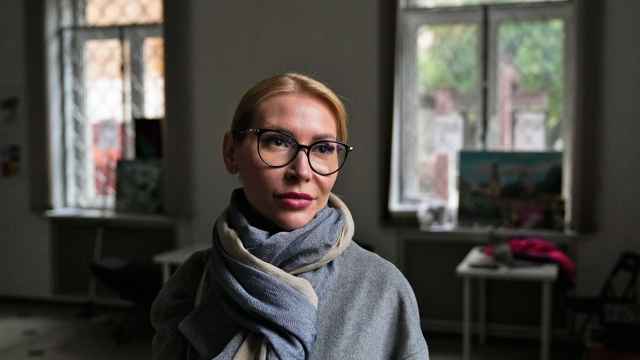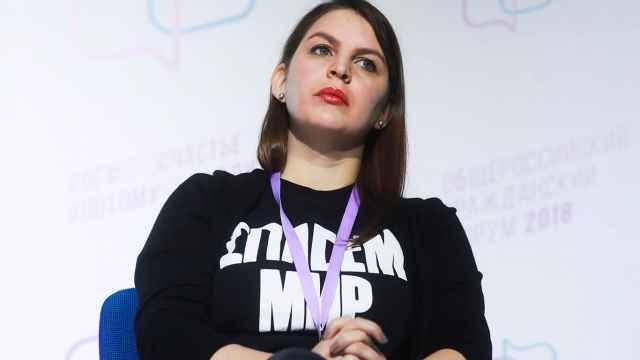The Russian government could be moving closer toward outlawing abortion, experts and activists have told The Moscow Times, as its wartime stifling of freedoms spreads to sexual and reproductive health rights.
While Russia has historically had a liberal abortion policy — with the exception of the Stalin-era ban — the conservative turn among the country's leadership, combined with a push from the Russian Orthodox Church, have put a target on the issue.
“The tentacles of the government are reaching closer and closer to our uteruses and our bodies,” said Eva Krestovits, a feminist activist from Russia’s republic of Bashkortostan. “Prospects for the future are horrifying.”
Earlier this month, Health Minister Mikhail Murashko publicly backed initiatives that would limit the distribution of abortion-inducing drugs in pharmacies and bar all privately owned medical facilities from administering the abortion procedure.
“Reducing abortion rates is a key task that we are working on,” Murashko told a meeting of lawmakers.
According to Health Ministry data, the number of abortions in Russia decreased by 3.9% (16,213 cases) from 2021 to 2022.
Despite this, the government faces mounting pressure from the Russian Orthodox Church lobby, which wants to edge the country toward a complete abortion ban in its quest to defend “traditional Christian values,” according to insider information obtained by the independent Vyorstka news outlet.
Though medication abortion is considered the safest method of terminating a pregnancy, the procedure is only available in privately run clinics in most Russian regions — making the initiatives proposed by Murashko largely contradictory.
“I think they want to see the public’s reaction and opinion on this,” said reproductive rights advocate Irina Faynman.
She said that the Health Ministry could push for legislation on stricter controls over abortion-inducing drugs, a move that would not introduce any significant limitations but would nevertheless placate religious conservatives.
“It is very important right now for those who are advocating for the freedom of choice…to express their opinion.”
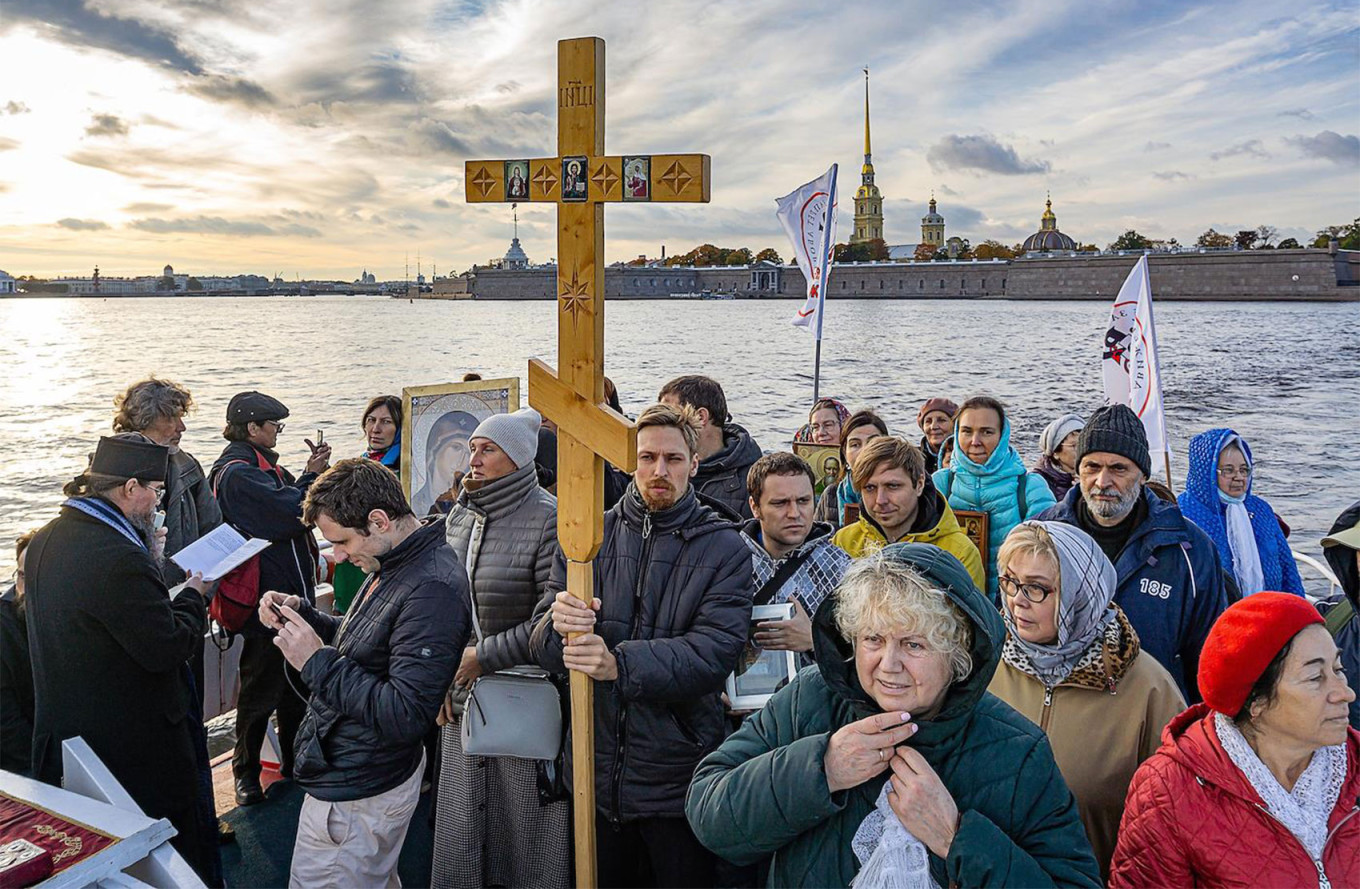
Under current Russian law, women can get an abortion on request up to the 12th week of pregnancy. In some exceptional cases specified in the law, including rape, death of the husband during pregnancy and imprisonment, an abortion may be obtained up to the 22nd week.
“De facto, when the system in the Russian Federation is compared to any other, it is still progressive, radical and very good overall,” said Marianna Muravyeva, a professor of Russian law at the University of Helsinki.
But in practice, women who want to get an abortion already face an array of obstacles, according to reproductive rights activists from several Russian regions who spoke with The Moscow Times.
In 2011, giving in to pressure from the Russian Orthodox Church, Russian lawmakers passed a law introducing a mandatory waiting period between the initial request for abortion and the procedure itself — a practice commonly referred to as “the week of silence.”
“It is a legal delay of the procedure, [introduced] with a hope that a woman will think it through and decide against having an abortion,” Muravyeva told The Moscow Times.
During this “week of silence,” women are encouraged to undergo pre-abortion counseling. Oftentimes, this counseling is provided not by a professionally trained psychiatrist, but by an individual who underwent government-sanctioned training.
The official training manual seen by The Moscow Times advises counselors to structure conversations in a way that would discourage the woman from getting an abortion.
The manual also labels women who refuse to discuss their psycho-emotional health with the counselor, or say that they have made the final decision about the procedure, as “aggressive.”
“Not many women know that they can refuse counseling and that it is not compulsory,” reproductive rights advocate Faynman told The Moscow Times.
But even some gynecologists employed at state clinics openly attempt to dissuade women from having an abortion, often using pseudoscientific arguments such as that abortion could lead to infertility or have a severe, irreversible impact on a woman's health, activists say.
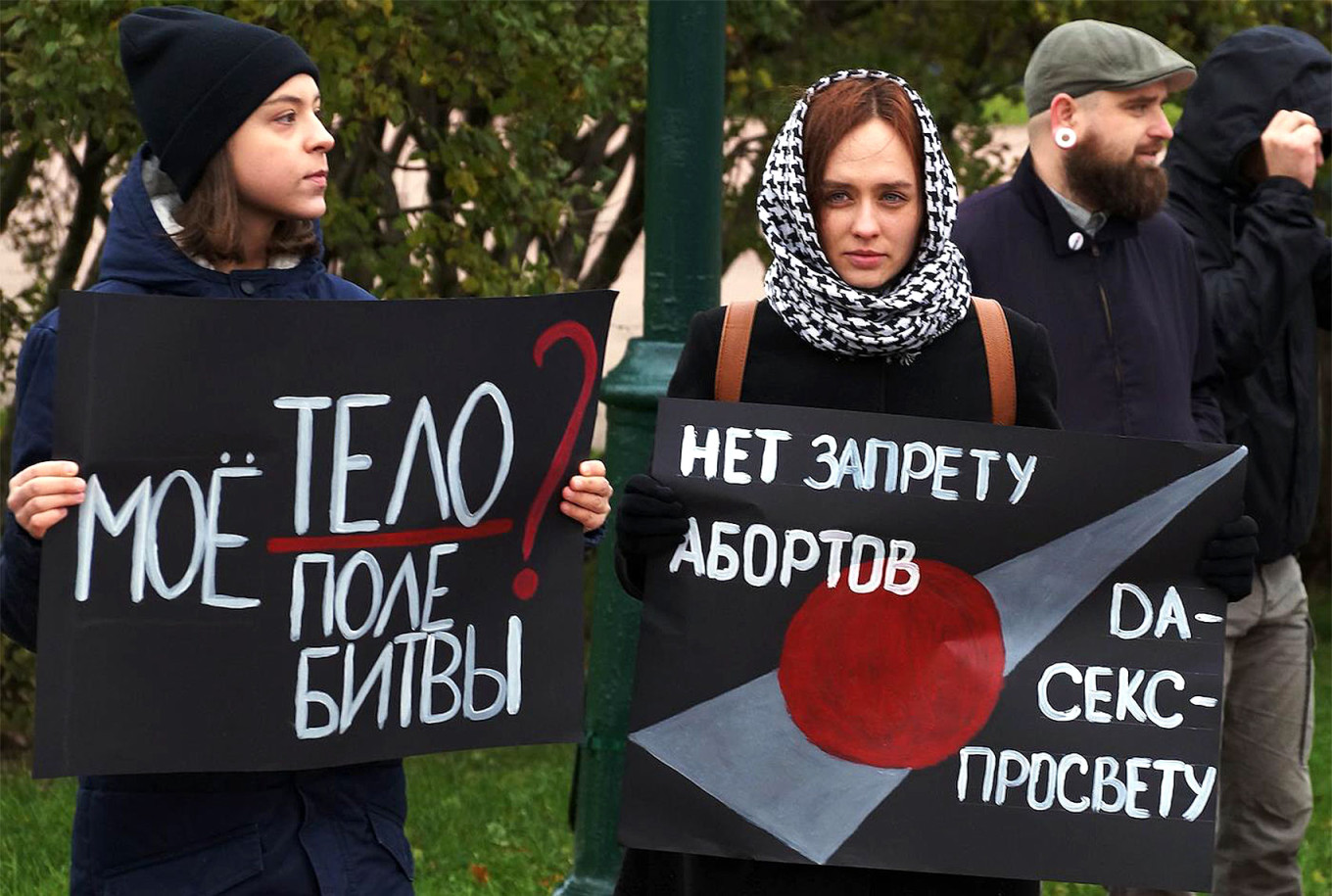
In other cases, state-owned hospitals will “lose” a woman's mandatory pre-abortion screening results, while some medical professionals refuse to perform abortions on the basis of their fundamental right to freedom of religion.
“There is no law in Russia allowing a doctor to refuse to perform abortion based on their religious views, but this phenomena [exists],” said law professor Muravyeva.
While women in major cities can turn to a private clinic when faced with resistance from state-employed doctors, this is not an option for many women living in small towns or rural localities with only one state-run gynecological clinic or hospital.
In some regions, a woman would have to travel one or even two days to reach their regional capital where a procedure could be performed at a private clinic. In addition to the travel costs, the price of abortion at private clinics in Russia ranges from 3,000 rubles ($33) to 30,000 rubles ($333) — a hefty sum for much of the population.
But Health Minister Murashko’s recent proposal could strip the option of getting an abortion at a private facility even for those willing and able to pay for it.
Murashko is at least the second Russian official who has sought to spearhead changes to Russia’s abortion law this year.
In May, ultra-conservative State Duma deputy Vitaliy Milonov proposed to remove abortion on request from the list of procedures covered by state-funded insurance, echoing a similar 2018 initiative in the Duma.
Shortly after Milonov’s statement, Anastasia Zelentsova, a feminist activist from Chelyabinsk, took to the streets of her native industrial town with a poster attached to a giant coat hanger that read “Excluding abortion from compulsory medical insurance is a genocide of women” — a rare act of defiance at a time when protests are all but not permitted.
“Despite the fact that I followed all the rules, law enforcement tracked me down…and took me to the police station, where I spent two hours,” Zelentsova recalled in a conversation with The Moscow Times.
“It feels like the government is doing everything possible to take away the peoples’ will to make their opinion heard,” she added.
Yet reproductive rights advocates agreed that vocal disagreement from women is, perhaps, the only thing still keeping the country from imposing a total abortion ban.
“An assault on abortion rights is an assault on the most fundamental thing we [Russian women] have, the only thing left for us to protect ourselves from the state and the violence,” said Muravyeva.
A Message from The Moscow Times:
Dear readers,
We are facing unprecedented challenges. Russia's Prosecutor General's Office has designated The Moscow Times as an "undesirable" organization, criminalizing our work and putting our staff at risk of prosecution. This follows our earlier unjust labeling as a "foreign agent."
These actions are direct attempts to silence independent journalism in Russia. The authorities claim our work "discredits the decisions of the Russian leadership." We see things differently: we strive to provide accurate, unbiased reporting on Russia.
We, the journalists of The Moscow Times, refuse to be silenced. But to continue our work, we need your help.
Your support, no matter how small, makes a world of difference. If you can, please support us monthly starting from just $2. It's quick to set up, and every contribution makes a significant impact.
By supporting The Moscow Times, you're defending open, independent journalism in the face of repression. Thank you for standing with us.
Remind me later.



